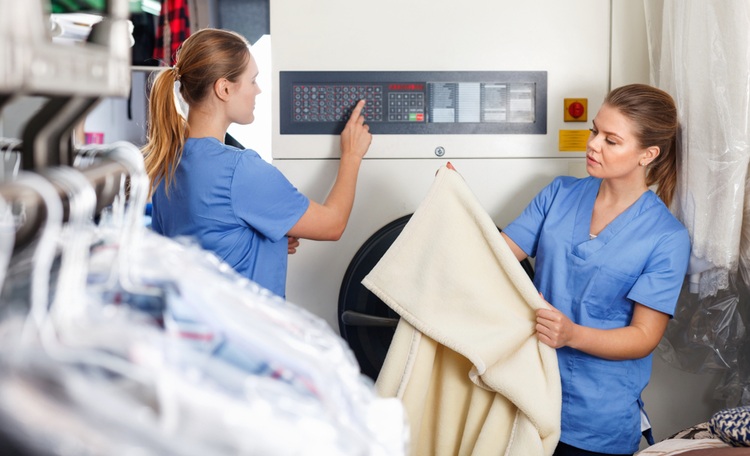Work Activities and Operational Contexts in Cleaning Roles in Germany
Cleaning roles in Germany encompass a range of tasks connected to the maintenance and upkeep of residential, commercial, and industrial environments. Responsibilities may include surface cleaning, sanitation procedures, waste management, and the organization of supplies. Specific duties and work conditions can vary depending on the type of facility and operational standards. This article outlines observed aspects of cleaning-related employment, focusing on task types rather than employment guarantees or specific contractual terms.

What are the primary types of cleaning tasks in Germany?
Cleaning tasks in Germany vary depending on the sector and specific environment. In residential settings, typical activities include dusting, vacuuming, mopping floors, cleaning bathrooms and kitchens, and doing laundry. Commercial cleaning often involves more specialized tasks such as carpet cleaning, window washing, and sanitizing high-touch surfaces in offices, schools, and public buildings. Industrial cleaning may require handling heavy-duty equipment to clean manufacturing facilities, warehouses, or construction sites.
Across all sectors, common cleaning tasks include: - Surface cleaning and disinfection - Waste removal and recycling management - Floor care (sweeping, mopping, waxing) - Restroom sanitation - Dusting and polishing furniture - Window and glass cleaning
How is the workflow organized in residential cleaning settings?
In residential cleaning settings, the workflow is typically organized to maximize efficiency while ensuring thorough cleaning of all areas. Many cleaning professionals in Germany follow a top-to-bottom, left-to-right approach to ensure no area is missed. The workflow often begins with decluttering and organizing, followed by dusting high surfaces, cleaning mid-level areas, and finally addressing floors and baseboards.
Residential cleaners may use checklists to track progress and ensure consistency. They often prioritize tasks based on the client’s preferences and the specific needs of each home. Time management is crucial, as residential cleaners may need to complete multiple homes in a single day.
What is the typical workflow in commercial cleaning operations?
Commercial cleaning operations in Germany often follow a more structured and systematic approach due to the larger scale and complexity of the environments. The workflow may include:
- Initial assessment of the area to be cleaned
- Preparation of equipment and materials
- Execution of cleaning tasks according to a predetermined schedule
- Quality control checks
- Restocking of supplies and waste management
Many commercial cleaning companies in Germany implement zone cleaning systems, where different teams or individuals are responsible for specific areas or tasks. This approach helps maintain consistency and allows for specialization in particular cleaning techniques.
Which equipment and materials are commonly used in German cleaning operations?
German cleaning operations utilize a wide array of equipment and materials to ensure efficient and effective cleaning. Common equipment includes:
- Vacuum cleaners (upright and canister models)
- Mops and buckets (including microfiber systems)
- Carpet extractors and steam cleaners
- Pressure washers
- Floor scrubbers and polishers
- Window cleaning tools (squeegees, extension poles)
Materials and cleaning agents frequently used include:
- All-purpose cleaners and degreasers
- Disinfectants and sanitizers
- Glass and surface cleaners
- Floor care products (waxes, strippers, sealants)
- Microfiber cloths and dusters
- Eco-friendly and biodegradable cleaning solutions
German cleaning operations often prioritize environmentally friendly and sustainable products, reflecting the country’s strong commitment to environmental protection.
What are some unique aspects of cleaning jobs in Germany?
Cleaning jobs in Germany have several unique aspects that set them apart. The German emphasis on “Ordnung” (order) and thoroughness is reflected in cleaning practices. Attention to detail and precision are highly valued, and cleaning professionals are expected to maintain high standards consistently.
Germany also has strict regulations regarding the use of cleaning chemicals and waste disposal, which cleaning professionals must adhere to. Many cleaning companies in Germany offer specialized training programs to ensure their staff are well-versed in these regulations and best practices.
Additionally, the German cleaning industry has been at the forefront of adopting innovative technologies. This includes the use of robotic cleaners, IoT-enabled smart cleaning systems, and advanced data analytics for optimizing cleaning schedules and resource allocation.
How do cleaning roles vary across different sectors in Germany?
Cleaning roles in Germany can vary significantly across different sectors, each with its own unique requirements and challenges. Here’s an overview of how cleaning roles differ in various sectors:
| Sector | Key Cleaning Activities | Specialized Skills Required | Typical Working Hours |
|---|---|---|---|
| Residential | General housekeeping, laundry, kitchen and bathroom cleaning | Time management, attention to detail, discretion | Flexible, often during daytime |
| Commercial Offices | Surface cleaning, waste management, restroom sanitation | Efficiency, ability to work in occupied spaces | Evening or early morning shifts |
| Healthcare Facilities | Thorough disinfection, medical waste handling, operating room cleaning | Knowledge of infection control protocols, attention to detail | 24/7 shifts, including weekends |
| Industrial | Heavy-duty cleaning, machinery maintenance, hazardous material handling | Technical knowledge, safety awareness, physical stamina | Varied shifts, often aligned with production schedules |
| Hospitality | Room turnover, public area maintenance, laundry services | Speed, discretion, customer service skills | Flexible shifts, including weekends and holidays |
Prices, rates, or cost estimates mentioned in this article are based on the latest available information but may change over time. Independent research is advised before making financial decisions.
In conclusion, cleaning roles in Germany encompass a diverse range of activities across various sectors, each with its own unique operational context. From residential homes to industrial facilities, cleaning professionals play a vital role in maintaining hygiene, safety, and aesthetics. The industry’s commitment to efficiency, environmental sustainability, and technological innovation continues to shape the nature of cleaning jobs in Germany, offering opportunities for specialization and professional growth.
The shared information of this article is up-to-date as of the publishing date. For more up-to-date information, please conduct your own research.






